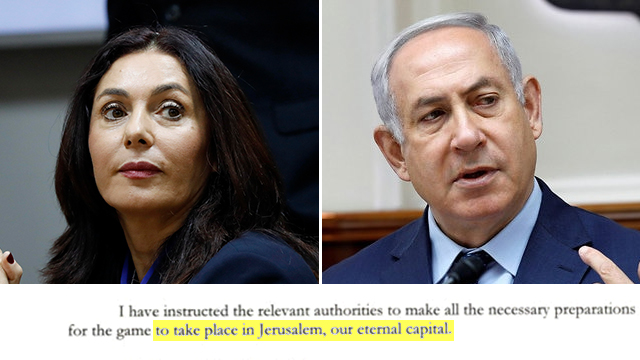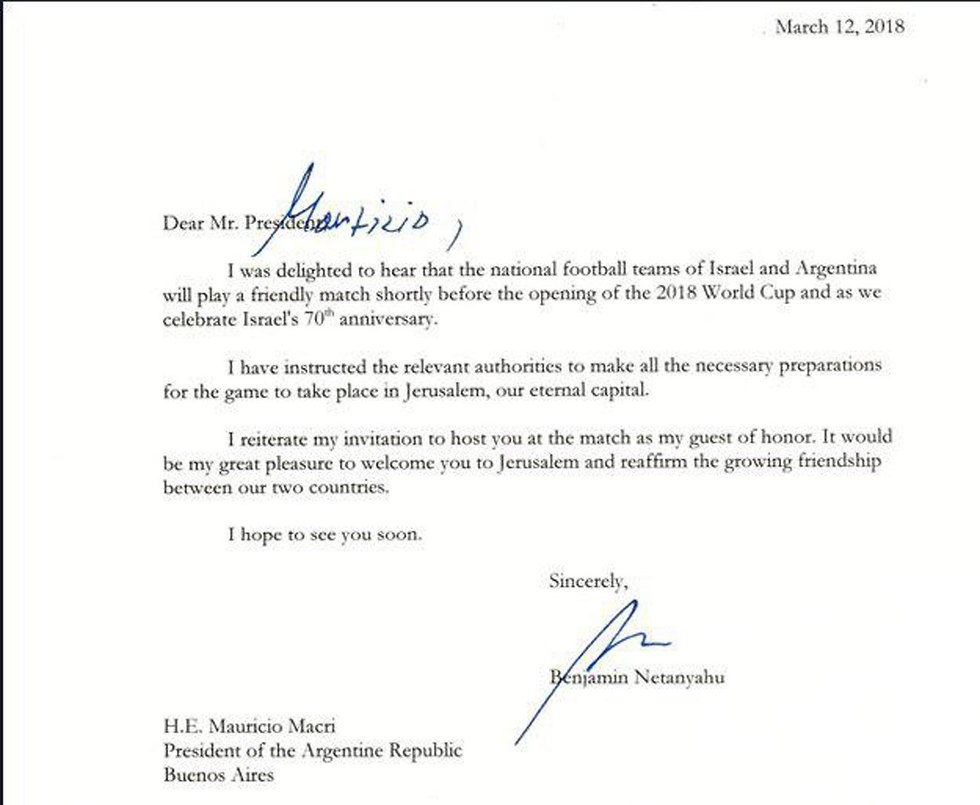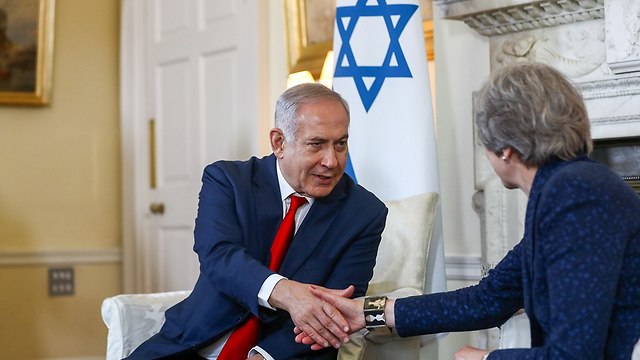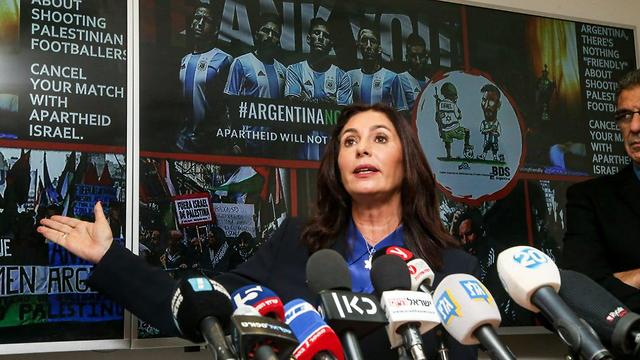
Netanyahu, Regev give different versions on nixed Argentine friendly
The prime minister and the sports minister each claim the other was the one to ask to move the World Cup warmup game between Israel and Argentina from Haifa to Jerusalem; letter PM sent Argentine president in March shows he pushed for change of venue.
After his meeting with British Prime Minister Theresa May in London, Netanyahu said the decision to move the match "was not mine. I didn't approach anyone or asked for the game to be moved to Jerusalem. I don't know what were the pressures imposed."
The prime minister then said it was Regev who "asked—not demanded—to move the game to Jerusalem."
While Netanyahu was briefing reporters in London, Regev was on TV giving an interview to Channel 2 News.
"The prime minister is the one who sent a letter to (Argentine President Mauricio) Macri about (three) months about coming to play in Jerusalem, and it was him who spoke to Macri yesterday and explained to him the importance of having the game in Jerusalem," Regev said.
A copy of the letter, dated March 12, 2018, shows the prime minister did approach Macri and asked him to hold the game in Israel's capital.
Regev also addressed the reports that Argentine soccer star Lionel Messi and his fellow players asked not to involve politics in their visit to Israel.
"I'm saying this clear and simple, if Messi had come to Israel, he would've met with the prime minister. The attempts by some in the opposition and those on the left-wing to attack me and attack the prime minister and constantly try to ruin the party gives headwind to terrorism," Regev asserted.
In the British capital, Prime Minister Netanyahu said that "the decision by the Argentine team (to cancel the game) was disappointing and unfortunate. I called the president of Argentina and asked for his intervention. He got back to me and apologized that he was unable to influence the matter because this was not the decision of the Argentine government."
"I hope it doesn't affect other matters, we need to be prepared for pressures," he added, without elaborating.
Israel was eagerly awaiting the sold-out international friendly scheduled for Saturday night at Jerusalem's Teddy Kollek Stadium and the arrival of some of the world's best players. Argentina is one of the most popular national teams among Israelis and fans had been scrambling to get a chance to see Messi in person.
But after a fierce Palestinian campaign, which included images of Argentina's white and sky-blue striped jersey stained with red paint resembling blood and threats to burn Messi posters, Argentina's football federation announced it was skipping the event.
In a press conference she held earlier Wednesday, Regev asserted the game was canceled solely because of the terror threats to Argentine soccer star Lionel Messi and his fellow players, and not over the decision to move the game to Jerusalem.
"The game was canceled for only one reason—the threats to the lives of Messi and his family," Regev insisted.
"This is an old-new terrorism, which scares and deters and terrorizes sportsmen. This is the same terrorism that caused the (1972) Munich massacre," she further accused.
Regev rejected claims that her demand to hold the game in Jerusalem instead of Haifa, where it was initially set to take place, led to the cancellation of the match, calling such assertions "despicable" and adding that "There's no bigger lie than this."
"The Argentine never objected to having the game in Jerusalem. After all, this game was born of Messi's desire to visit Jerusalem, to kiss the Western Wall and to visit the Church of the Holy Sepulchre," Regev said.
"Jerusalem is not a political issue. Jerusalem is the source of pride for the State of Israel and the Jewish people all over the world. Enough treating Jerusalem as a political issue," Regev added.
 |














